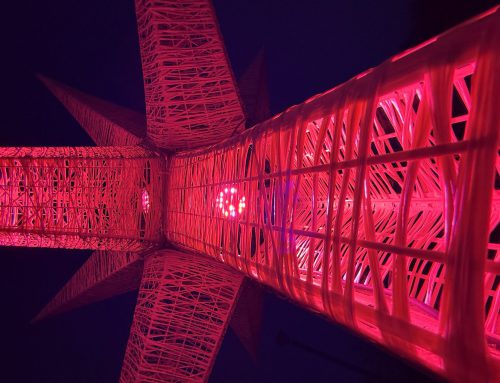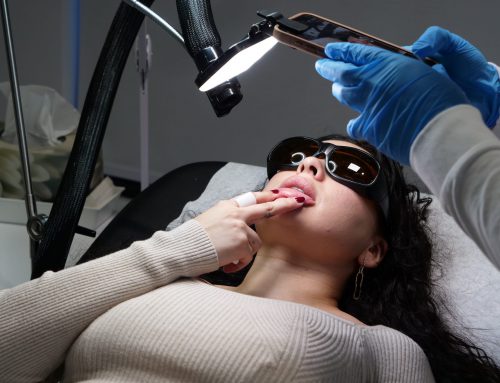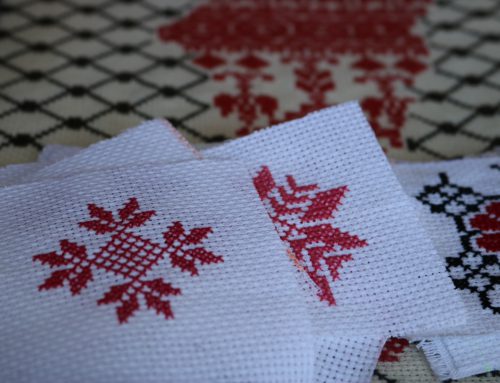BY Lauren Cassandra
When Quebec first made masks mandatory in public spaces in summer 2020, retail worker Dimana Radoeva was hopeful that this would soon mean the end of the pandemic and the restrictions.
“I’ve never had skin like this before,” says Radoeva. “Even as a teenager I’ve always had clear skin, and now my skin is covered in acne and acne scars. I have no idea how to get my skin back to how it was before wearing a mask.”
But a year later, masks remained mandatory. While they are necessary to stop the spread of the virus, they’ve also been blamed for the rising cases of medical skin conditions. Specifically acne that is present in the same areas of the skin that the mask covers. This has led Twitter users to coin mask induced acne as “maskne”.
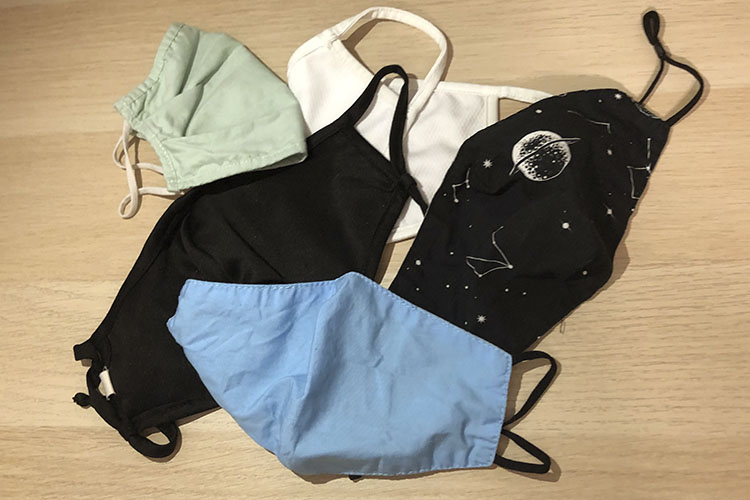
While scientifically proven to be life saving, masks are also contributing to the growing rise of maksne. Photo by Lauren Cassandra.
“My acne has made me dread going to work or to the grocery store,” says Radoeva. “It’s difficult because I want to wear a mask to keep me safe, but at the same time all I think about when I’m wearing it is how bad my skin will be because of it.”
The problem has caught the attention of medical experts.
“There’s been a recent explosion of acne that was often pre-existing or sometimes where patients didn’t have an existing acne problem,” according to certified dermatologist and President-Elect of the Canadian Dermatology Association Dr. Catherine McCuaig. “It’s absolutely in relation [to wearing a mask], and often we see that the tendency is for patients to show up at a dermatologist office six weeks after starting the use of wearing a mask.”
McCuaig says that there are three elements that link acne to face masks. The first is when hair follicles become blocked and rupture. Then, there’s pressure and friction when the mask rubs against our skin, causing irritation. Lastly, wearing a face mask traps humidity which changes the natural bacteria on our skin and can cause maskne.
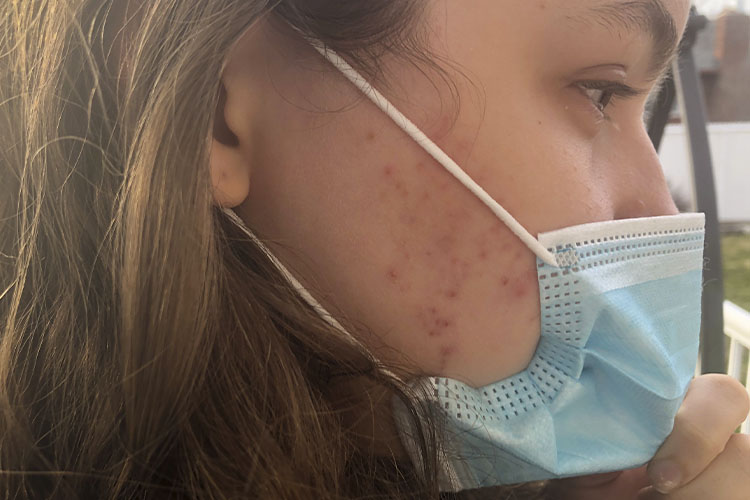
Maskne can present itself on the cheeks, chin and upper lip area. Sometimes, it can be visible even when wearing a face mask. Photo by Lauren Cassandra.
Unlike hormonal acne, there is no medication that can completely stop maskne from developing. However, there are still a variety of skincare treatments that can help. According to the Canadian Dermatology Association, ingredients such as salicylic acid and benzoyl peroxide can help by decreasing inflammation and killing bacteria. They can be found in face washes, moisturizers and spot treatments. These ingredients are primarily used to unclog pores and remove bacteria from your skin.
“You have to use very gentle skin cleansers.” Says McCuaig who also recommends using non-comedogenic creams containing natural ingredients that will not clog your pores. She also stresses that any strong anti-inflammatory ingredients, such as retinoids, salicylic acid, and benzoyl peroxide should be used at night when your skin is no longer under any stress from the mask.
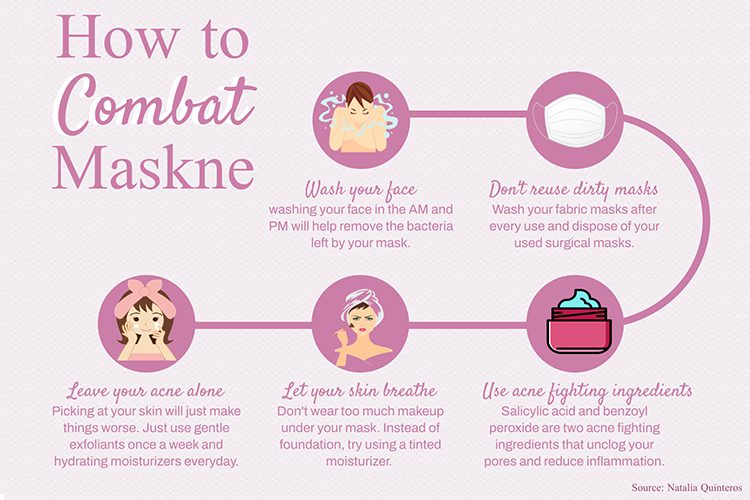
Five simple tips that are recommended by skincare expert Natalia Quinteros to help combat maskne. Media by Lauren Cassandra.
Since masks became mandatory in Quebec, certified aesthetician Jasmine Theroux has seen an increase in clients seeking aesthetic services to treat their maskne.
“A lot of my clients feel embarrassed about their acne.” says Theroux. “We tend to have this idea in our heads that having acne means we’re dirty and that we should be embarrassed by it. But that’s not true, we all get acne for different reasons and it’s just important that we learn how to treat it.”
According to the Canadian Dermatology Association, acne can cause a variety of psychological effects ranging from negative self-image to depression. Embarrassment about the state of our skin can also cause irritability and anger that may be projected onto others.
“I’ve had some clients be angry with me that facials and my recommendations haven’t immediately worked. But that’s normal, acne always gets worse before it gets better. You just need to stick to a good routine and be patient,” says Theroux.
Many skincare specialists warn that acne tends to get worse before it gets better. That’s because of skin purging which is triggered by acne fighting ingredients that removing bacteria from pores in the skin – leading to an excessive amount of breakouts. Skin purging is a common occurrence for many acne sufferers, but normally leads to a long-term recovery.
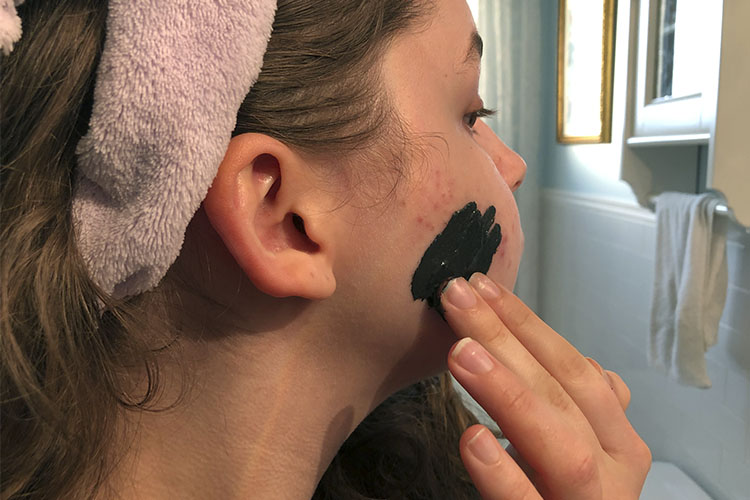
Using acne fighting ingredients can help subdue breakouts and slowly improve your acne . Photo by Lauren Cassandra.
Many essential workers cannot avoid wearing masks for long periods of time, and the bacteria that is being trapped under their mask for eight hours causes acne breakouts. This has led many sufferers to rush to their local beauty supply stores to try to find something to soothe their skin. Certified aesthetician Natalia Quinteros regularly helps clients try to find over the counter products that will subdue their maskne.
“When I worked at Sephora over the winter, a lot of customers were desperate to find something to improve their skin.” says Quinteros. “For skin with acne, it’s usually best to use products that are unscented and oil free as they tend to be the least comedogenic. If one were to use an exfoliant, I’d reach for a chemical exfoliant rather than a mechanical exfoliant as to not irritate the inflamed tissue. The best skincare routine for acne consists of, at least, the basic steps: a gentle daily foam or gel cleanser, an oil-free toner and a gel facial moisturizer ideally containing a small amount of salicylic acid to help treat the acne.”
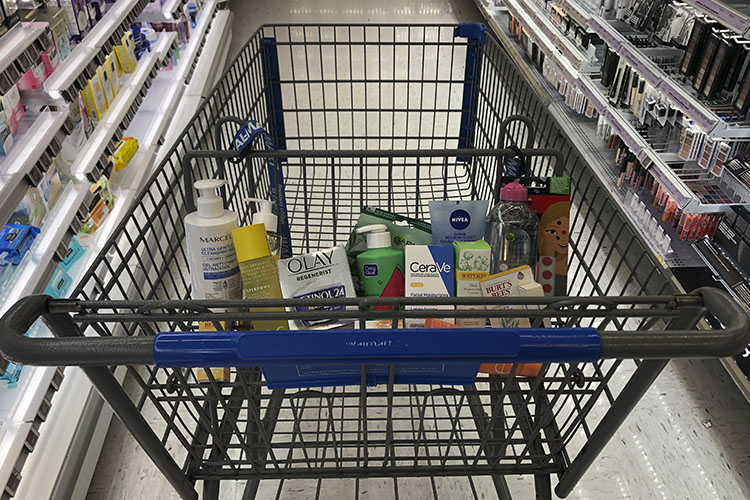
There are many good acne fighting products that can be found at your local beauty supply store. Photo by Lauren Cassandra.
Quinteros assures that there is an abundance of over-the-counter acne products found at your local beauty supply store that work well to subdue the effects that maskne may have on your skin.
While maskne has caused Dimana Radoeva a significant amount of stress and anxiety, Radoeva continues to wear her mask whenever she leaves her apartment.
“It really sucks that my skin is reacting badly [to the mask]”, says Radoeva. “But I know that it’s important for everyone’s safety, and as long as scientists are saying we need to wear one I’ll continue to wear one no matter what my skin looks like.”

